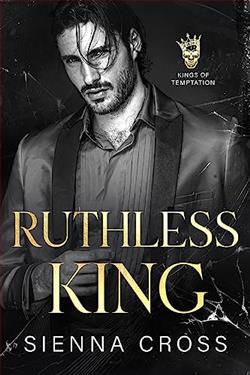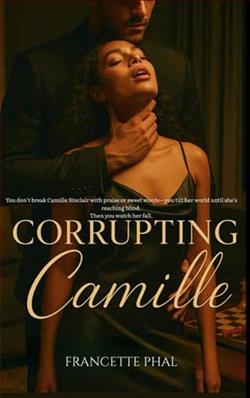Page 11 of Coram House
But I’m not finished yet. “What about this other boy—Fred Rooney?”
Stedsan snorts. “What about him?”
“A few accounts suggest he was close to Sister Cecile—a kind of helper. And Sarah Dale saw him going down to the beach that day.”
“Claimsshe saw him going down to the beach,” he says absently, another lawyer’s reflex. “Even if Sarah Dale’s testimony was true and Fred was in the boat that day—so what? That makes him less likely to talk, not more.”
I taste blood and only then notice I’ve been nibbling the inside of my cheek. All traces of Tommy are gone, as if he never existed. But it’s not that easy to erase someone. It can’t be.
“Look, Alex,” Stedsan’s voices softens as he leans forward. For a second, I’m afraid he’s going to pat me on the head.
“I know it’s tempting to think you can solve this. And, God knows, it would make for a great story if you could. But it’s been fifty years since that boy died or ran away.” He turns his palms up in surrender. “Some things—we have to accept that they’ll stay questions forever.”
“I know it sounds crazy, but what if we dragged the lake? It’s possible—”
“Alex.” He says my name like he’s slapping sense into me. “I admire your”—he pauses—“dedication to the truth. But there’s such a thing as taking it too far. I’d think you would know that.”
Heat rushes to my face. It was the way he emphasized theyouso I’d know exactly what he was referring to.
“Look, I’ll make it easy for you. Ultimately, it’s my book and I’m telling you to drop it. There’s nothing there. There—now you can feel you’ve done your due diligence.”
Stedsan smiles at me as if to say,Problem solved.Then he glances down at his watch. “Listen, I have to go. I’ll see you Wednesday at nine, all right? We can meet at the rectory next to Sunrise House.”
“Fine,” I bark, knowing I sound like a petulant teenager. But Stedsan either doesn’t notice or doesn’t care. He pulls on his jacket, sayingsomething about the chief of police and something called a duffer, but I’m not listening, and then he’s gone.
I pick up my coffee with shaking hands, but the smell of burnt milk turns my stomach. Stedsan acts like the truth is meaningless if you can’t prove it.Sarah Dale was unreliable. Unstable. Prone to exaggeration.How many times has someone dismissed the words of a woman or a child as untrustworthy? He thinks this will all come to nothing, but I think I’ve found a thread that leads to the heart of the story. And the only way to find out is to tug.
4
The room smellslike vanilla mixed with old paper, the sweetness of rot. I sit with my binder open before me. Everything I know so far is organized in chronological order and then categorized by what use it might have in the book. Blue for dialogue—hard to come by in a historical book. Green for important events. And then red, the rarest of all. Sometimes it’s a particularly vivid description or a scene that propels the story forward. It’s not any one thing. But I know it when I see it.
I turn to the first page—my map of Coram House. I’ve sketched three rectangles: Coram House, the rectory, and the church. Scattered circles represent the graveyard, leading down to a wash of blue for the lake.
My plan is to spend the day reviewing the binder and coming up with questions for the meeting with Father Aubry tomorrow, but I can’t focus. Yesterday’s conversation with Stedsan—his patronizing speech about getting comfortable with uncertainty—is buzzing in my head. And then his allusions to my last book at the end.
There are two versions of me sitting at this table. The one who knows I should sit down, review my notes, prep for tomorrow, who knows this book is my second chance and doesn’t want to think about what happens if I screw it up. Then there’s the other me, the one who breaks out in a rash at the thought of sitting quietly when there has to be more information out there. That one wins.
I get dressed. Black pants. A white button-down. Some concealer to cover the bags under my eyes. Perched on the edge of the bathtub, I take in my full reflection in the mirror above the sink. I look like awaiter. So I put on a pair of gold studs and a patterned scarf that Adam brought back from a trip to Mexico. I never wore it while he was alive. Not really my taste. But I couldn’t throw it away either. I look at my reflection. Better.
The parking lot next to the police station is mostly empty. I pull in, past the row of black-and-white cruisers, and park in a visitors’ spot. The entrance is strung with red Christmas lights, like it’s an Amsterdam sex shop instead of a small city’s police headquarters.
The automatic doors whoosh open, and I pass into a reception area: a row of plastic chairs and a desk festooned with tinsel behind which an older woman sits typing. Reading glasses dangle from her neck on a gold chain like she too is wound with tinsel. A placard on the desk saysBEVERLEY WHITE.
“Good morning, Ms. White,” I say. People like it when you use their name.
She stops typing and smiles up at me. “I haven’t lost my marbles if that’s what you’re thinking.”
I feel disoriented, like I’ve wandered into the middle of a conversation.
“The decorations, dear,” she says patiently. “It’s the twelfth of January. And please call me Bev.”
“Right. Of course. They’re very… cheerful,” I say, thinking of my landlord and his bright-purple house.
“Now, how can I help you, young lady?”
Suddenly all business, she reminds me of a thousand other women who have come before her, guarding the gates of administration offices everywhere.
“I’m trying to find some historical records,” I say. “Specifically, I’m looking for records of deaths from the 1960s.”















